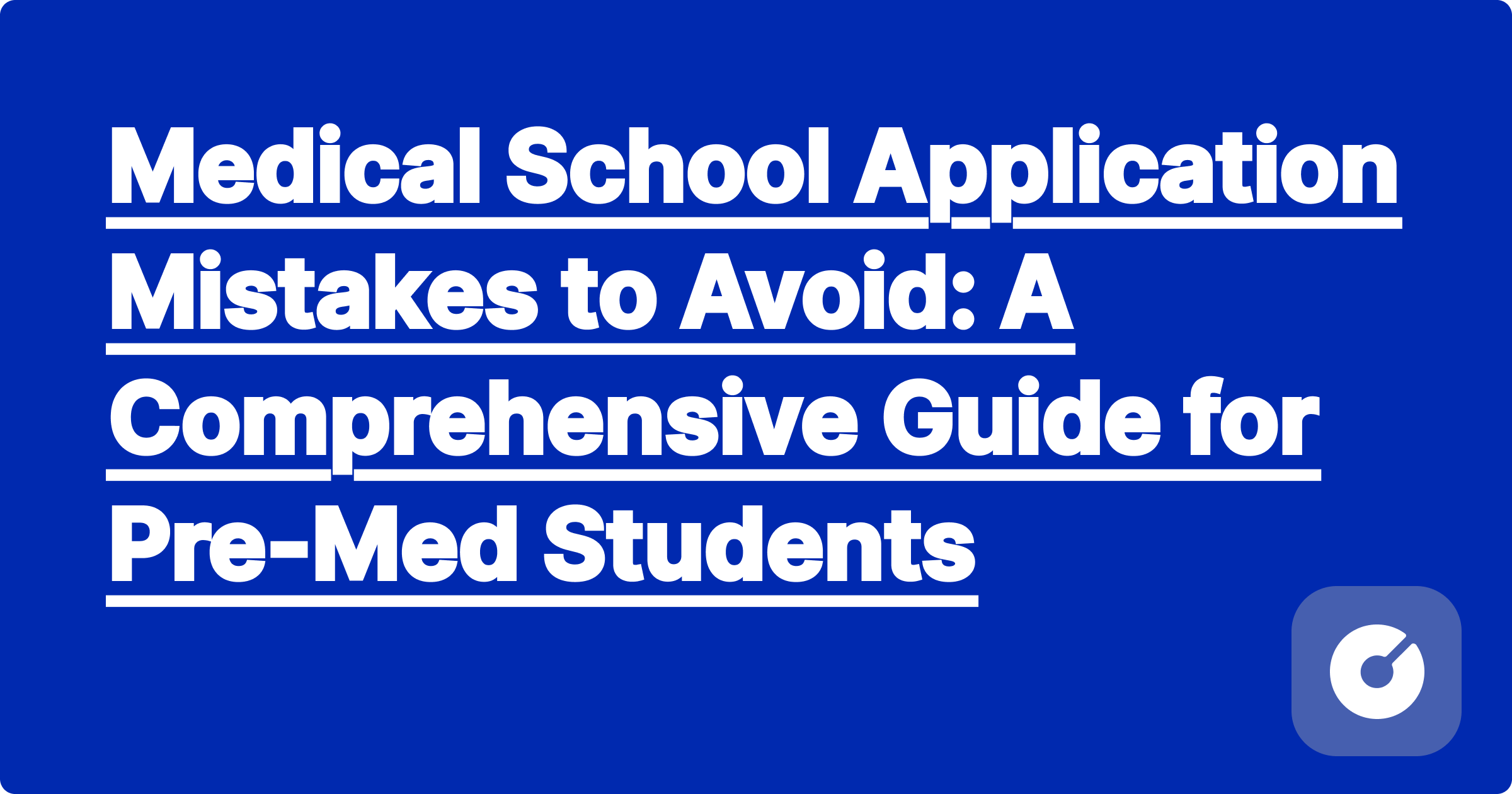
The journey to becoming a doctor is long, arduous, and incredibly competitive. Securing a spot in medical school is a significant hurdle, and many aspiring physicians stumble along the way due to avoidable mistakes. This comprehensive guide aims to illuminate common pitfalls in the medical school application process, providing actionable advice and insights to help you navigate this challenging path successfully. We'll cover everything from academic performance to financial planning, ensuring you're well-equipped to present the strongest possible application in 2024.
Your GPA and MCAT score are the cornerstones of your medical school application. These metrics significantly influence your chances of acceptance, and neglecting them can be detrimental.
2024 Statistics (Note: Precise 2024 data may not be fully available until later in the year; these figures are estimations based on trends and previous year's data):
Average MCAT Score: The average MCAT score for successful applicants remains highly competitive, hovering around 510-518. However, top medical schools often have average admitted student scores significantly higher.
Average GPA: A strong GPA is equally crucial. Most successful applicants boast a GPA of 3.7 or higher, with some top schools expecting even higher averages.
Acceptance Rates: Acceptance rates at top medical schools remain exceptionally low, often below 5% and sometimes dipping below 2%.
Mistakes to Avoid:
Underestimating the MCAT: Many students underestimate the difficulty and time commitment required to achieve a high MCAT score. Start preparing early, ideally a year or more in advance, and utilize reputable prep courses and resources.
Ignoring GPA: A strong GPA is not just about achieving high grades; it's about maintaining a consistent upward trajectory. One poor semester can significantly impact your overall GPA.
Lack of Course Selection Strategy: Failing to strategically select courses that strengthen your application (e.g., biology, chemistry, physics) can weaken your competitiveness.
Your essays are your opportunity to showcase your personality, experiences, and motivations for pursuing medicine. A poorly written or uninspired essay can significantly harm your chances.
Mistakes to Avoid:
Generic Essays: Avoid generic statements. Medical schools want to know why you are uniquely suited for medicine. Focus on specific experiences, challenges, and insights that have shaped your aspirations.
Ignoring Essay Prompts: Carefully read and respond directly to each essay prompt. Failing to address the specific questions can demonstrate a lack of attention to detail.
Poor Writing and Editing: Grammatical errors, typos, and poor writing style can make your application appear unprofessional and less credible. Seek feedback from multiple sources and thoroughly proofread your work.
Strong letters of recommendation can make a significant difference in your application.
Mistakes to Avoid:
Requesting letters from professors you barely know: Select recommenders who can speak to your academic abilities and personal qualities convincingly. Build strong relationships with your professors and provide them with ample time to write thoughtful recommendations.
Forgetting to follow up: Follow up with your recommenders to ensure they submit their letters on time.
Medical schools value well-rounded applicants who have demonstrated commitment to service, research, or other extracurricular activities.
Mistakes to Avoid:
Listing activities without depth: Don't just list activities; explain your involvement, contributions, and what you gained from them. Show, don't tell.
Lack of focus: Avoid spreading yourself too thin. Focus on a few activities where you can demonstrate significant commitment and achievement.
Medical school is expensive. Understanding the financial implications is crucial.
Mistakes to Avoid:
Underestimating the cost: Tuition, fees, living expenses, and other associated costs can easily exceed $250,000 over four years. Begin researching financial aid options early.
Failing to explore funding options: Explore scholarships, grants, loans, and other funding sources. Don't rely solely on federal student loans.
Medical school applications are complex and require careful planning and organization.
Mistakes to Avoid:
Procrastination: Start preparing early. The application process is lengthy and requires significant time and effort.
* Missing deadlines: Medical school deadlines are strict. Missing a deadline can be fatal to your application.
Sarah, a bright pre-med student, excelled academically but underestimated the MCAT. She started preparing late and achieved a score below her potential, significantly impacting her application success. This highlights the importance of early and thorough MCAT preparation.
Applying to medical school is a marathon, not a sprint. By avoiding the common mistakes outlined in this guide, you can significantly improve your chances of acceptance. Remember to plan strategically, dedicate sufficient time and effort to each aspect of your application, and seek guidance from mentors and advisors. Your dedication and preparation will pave the way to a successful medical school journey. Good luck!
Second Career Medical Students: Changing Paths to a Rewarding Career
Foreign Medical Schools for US Students: A Comprehensive Guide for 2024 and Beyond
Osteopathic Medicine: Growing Acceptance and Benefits for Aspiring Physicians
Joint Degree Programs: MD/MBA, MD/JD, MD/MPH – Your Path to a Multifaceted Career in Medicine
Physician Assistant vs. Medical School: A 2024 Decision Guide for Pre-Med Students
Part-Time Work During Medical School: Is It Possible? A Practical Guide for Pre-Med Students
Balancing Relationships During Medical School: A Guide for Pre-Med Students
Navigating the Path: A Comprehensive Guide for International Students Applying to US Medical Schools
Medical School Specialties - Choosing Your Path Early: A Guide for Pre-Med Students
State vs. Private Medical Schools: A 2024 Tuition Comparison Guide for Pre-Med Students